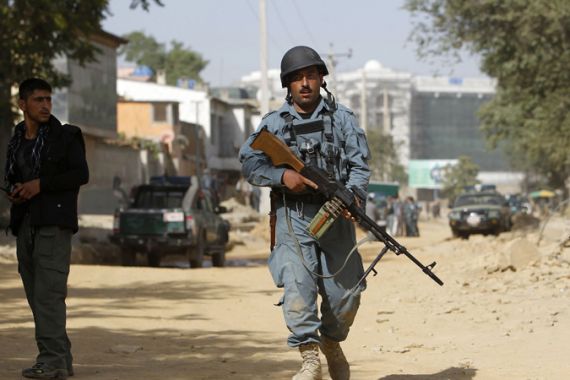Obama and Karzai discuss Taliban impasse
Two leaders discuss ways to move forward planned peace negotiations with Afghan group, but Karzai remains circumspect.

Doubts persist over the fate of planned peace talks with the Taliban, despite the US President Barack Obama and his Afghan counterpart Hamid Karzai discussing ways to move forward the stalled negotiations.
The two leaders held a video conference on Tuesday, hours after the armed Afghan group carried out an attack on the presidential compound and a United States CIA office in Kabul, resulting in at least three deaths.
Though Washington claimed that both leaders reiterated their support for the Taliban’s new political office, set up in the Gulf state of Qatar with a view to facilitate the talks, Karzai is understood to have held himself back from committing to the negotiations.
|
|
| Afghan army is moving forces into the Ghorband valley |
Obama and Karzai “reaffirmed that an Afghan-led and Afghan-owned peace and reconciliation process is the surest way to end violence and ensure lasting stability in Afghanistan and the region”, the White House said.
“And they reiterated their support for an office in Doha for the purpose of negotiations between the High Peace Council and authorised representatives of the Taliban,” it said.
The Afghan government, however, only confirmed that the two leaders had conversed about various security and other matters, and would not commit to whether the Afghan government was satisfied with the peace talks process.
“The Afghan president was more circumspect in his announcement, saying that he and President Obama discussed a wide range of issues, including the [2014 presidential election], the bilateral security agreement with the United States and the security transition. He said that each side made their position known to each other,” Al Jazeera’s Jennifer Glasse reported from Kabul on Wednesday morning.
Afghan objections
Afghanistan had earlier objected to the setting up of the Taliban political office in Doha under the name and flag of “the Islamic Emirate of Afghanistan”, which was the name of the Taliban’s government from 1996-2001.
Until the issue of the external aspect is not solved with the occupiers, it is useless to tackle the internal aspect
The flag and the name triggered a diplomatic crisis that derailed the early stage of efforts to start the peace talks as the US-led NATO combat mission prepares to withdraw 12 years after the Taliban were ousted. Afghanistan also suspended talks on a bilateral security agreement that would govern how many US troops remain behind in Afghanistan after the 2014 pullout, and what role they would play.
The Afghan government, which has said it is still committed to the peace process as a whole, insists that the Taliban’s office in the Gulf state must only be used for direct talks with Karzai’s appointed negotiators.
The Taliban, however, have repeatedly expressed unwillingness to deal exclusively with the Afghan government, saying that the United States must be part of the process.
“The Islamic Emirate has openly expressed in its declarations that the dilemma of Afghanistan has two main aspects; one is external which is related with the foreigners and the other is internal which is related with Afghans. Until the issue of the external aspect is not solved with the occupiers, it is useless to tackle the internal aspect,” said Mohammad Naeem, a Taliban spokesperson in Doha, in an interview published on the group’s website on Wednesday.
“The Taliban have always said that they will continue fighting despite the peace process, that they’ll continue fighting as long as there are foreign soldiers in Afghanistan and what they call a puppet government. […] I just spoke to a member of the [Afghan] High Peace Council, who says they remain optimistic that this process will go forward. The Taliban remain at their position where they have no intention of speaking to the Afghan government,” reported Al Jazeera’s Glasse.
The contentious sign, flag and flagpole unveiled at the opening of the office last Tuesday have since been moved, Naeem confirmed.